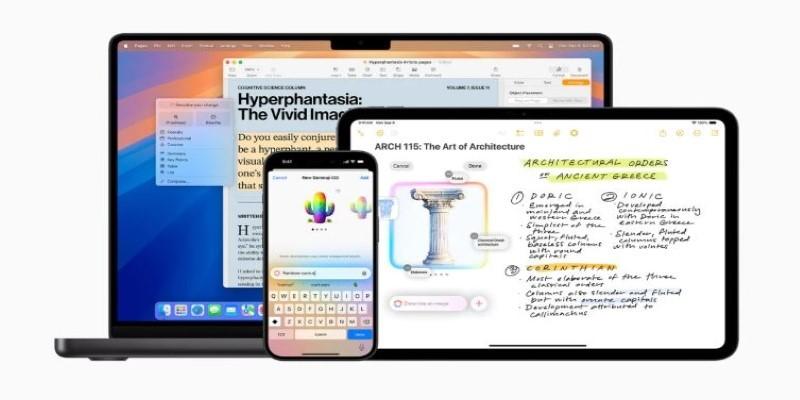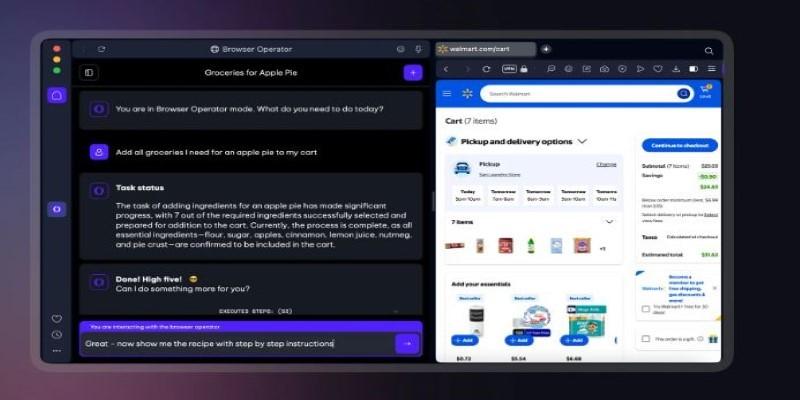In a move that feels oddly unnecessary, Meta has started testing AI-generated comments on Facebook and Instagram. Users have noticed suggested replies that appear under photos, posts, and updates—even under personal content. These aren’t full-on bots replying to everything, but short comments generated by AI based on the context of a post.
Meta hasn't explained much, which has left users wondering why this exists at all. Is it about convenience, engagement, or something else? The whole thing raises questions about how people interact online and whether replacing human responses with machine-written text does more harm than good.
The Push for AI in Everyday Interaction
Meta’s interest in automating parts of its platforms has been building for years. AI tools already appear in chat functions, helping people search, draft replies, or plan messages. Bringing that same logic to comments seems like the next step—at least from a technical perspective. But while smart replies in messaging apps are private and often unnoticed, public comments are more visible and carry a different kind of weight.

Suggested comments like “That looks fun!” or “Amazing shot!” seem harmless on the surface. They may even match the tone of what people would say. But there’s something odd about seeing those phrases show up repeatedly, without much variation, especially when it's not clear whether a person wrote them or simply tapped a suggestion. It turns what used to be genuine feedback into something that feels manufactured.
The feature appears to be contextual, drawing from the image, caption, and other details to generate comments that seem relevant. The goal, perhaps, is to make interactions smoother—particularly for users who don’t usually comment or who might be hesitant to write something themselves. But the trade-off is authenticity. If everyone’s using the same three generic phrases, it’s hard to tell who really engaged with the post.
This automation of small social actions might seem like a shortcut, but it comes with consequences. It could shift the way people experience interaction online. Instead of building connection through thoughtful replies, we might end up in a loop of machine-suggested feedback that no one remembers sending.
What’s Meta Really Aiming For?
Meta’s main incentive likely revolves around engagement. More comments mean more activity. More activity means users are more likely to return, stay longer, and see more ads. Encouraging people to post—even if they don’t type a word themselves—serves that goal. It makes the feed look alive and popular, even if the comments are partly artificial.
From a business angle, that may seem like a good move. But it also reshapes how social media works. People have always interacted differently on platforms—some write long responses, others hit the like button and move on. AI-generated comments push everyone toward the same type of shallow interaction. That may be easier to manage and track, but it comes at the cost of real expression.
There’s also a possible accessibility angle. In regions where people are less confident writing in a second language, these AI comments could act as a communication aid. But it’s unclear how useful this actually is. If the goal is to help users engage more confidently, there are better tools, like translation or writing assistance, that don’t risk hollowing out the interaction.
Meta hasn’t confirmed how widely the feature will roll out or how long the test will last. That could mean they’re gauging user reaction quietly. It might stay under the radar, or it could become a built-in part of the commenting experience. If that happens, the line between human and AI interaction will get even blurrier.
The Trade-Off Between Ease and Authenticity
Many digital tools are designed to save time. Predictive text, auto-replies, voice-to-text—these are all shortcuts people use daily. But saving time in public social spaces has a different effect. Leaving a comment on someone’s post is usually a moment of connection. It's small, yes, but it’s still a choice to say something. Automating that removes the intention behind it.

Over time, that could lead people to question whether their online interactions matter. If you get ten comments on a photo, but half are machine-generated or just tapped suggestions, does that feel the same as ten real messages? Probably not.
And it’s not just about the person posting. For the user relying on AI to speak for them, the experience shifts too. What happens when most of your replies are filtered through a preset model? You’re no longer responding as yourself—you’re responding as a reflection of what the platform thinks you might say.
These small automations may feel minor now, but over time, they add up. As platforms take over more of the social effort, users contribute less, leading to reduced emotional connection, less personal expression, and a more uniform online experience.
The Bigger Picture: Where Social Media Might Be Headed
Meta’s test isn’t just about comments—it’s part of a broader shift in how platforms function. Many features now operate with minimal human input. Algorithms decide what you see. Filters edit your photos. Suggested posts, stories, captions, and now comments are generated for you.
This might be useful in small bursts. But as more layers of interaction become automated, something gets lost. People don’t just want quick responses—they want meaningful ones. That’s what made social media feel personal in the first place.
If AI-generated comments become the norm, interactions might feel empty. Not offensive—just hollow. Even when comments seem kind or supportive, they may lack the human presence that gives them real weight.
This doesn’t mean users will leave platforms, or that AI will ruin social media. But it does mean we’re entering a space where people interact more by default than by intention. The question is whether that’s something users will accept—or quietly resist.
Conclusion
Meta’s test of AI-generated comments is more than a small update—it hints at where social media is headed. Automation may speed things up, but it risks making interactions less genuine. This feature raises questions about online communication and identity. As platforms focus on efficiency, we have to ask: can they still represent a real human connection when users no longer speak in their own words?












